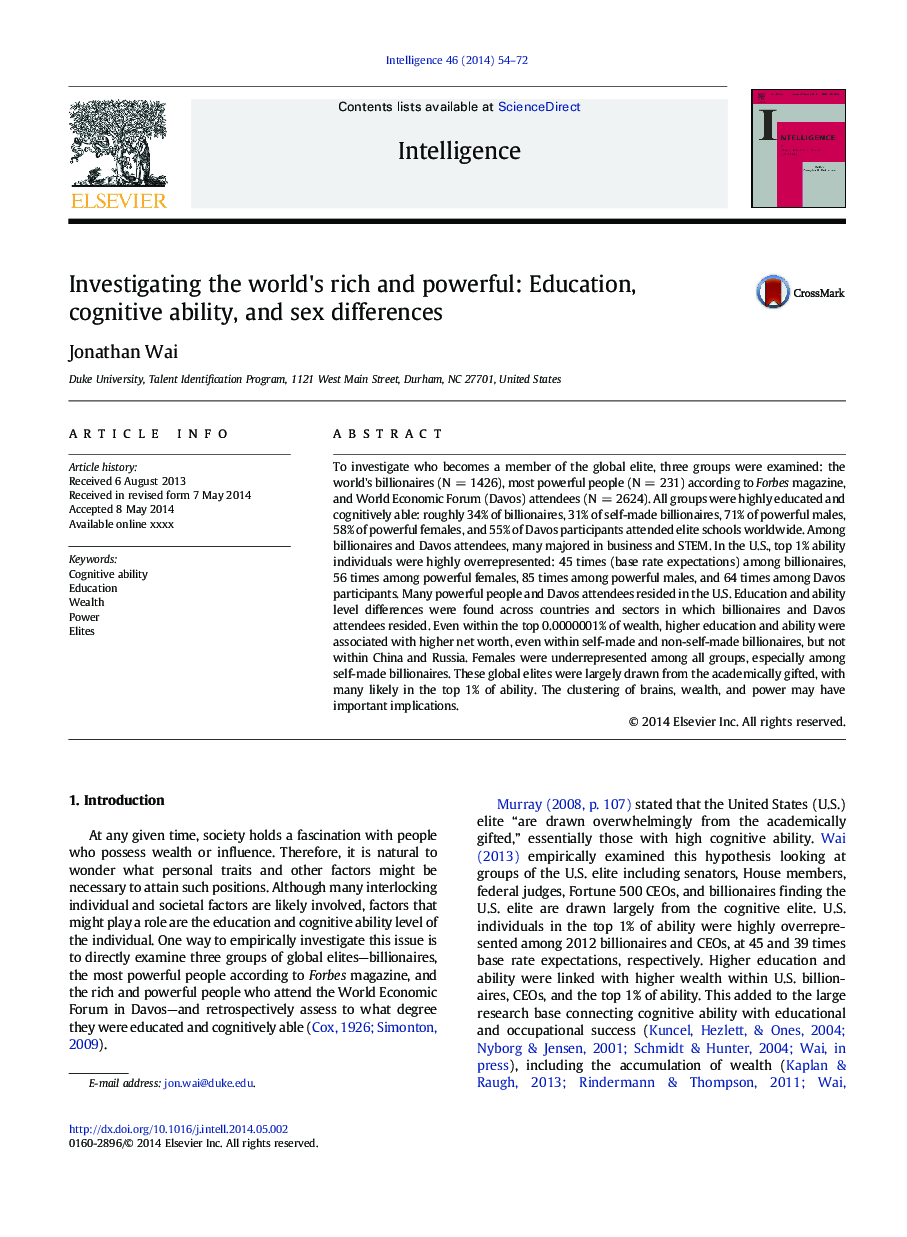| Article ID | Journal | Published Year | Pages | File Type |
|---|---|---|---|---|
| 7294251 | Intelligence | 2014 | 19 Pages |
Abstract
To investigate who becomes a member of the global elite, three groups were examined: the world's billionaires (NÂ =Â 1426), most powerful people (NÂ =Â 231) according to Forbes magazine, and World Economic Forum (Davos) attendees (NÂ =Â 2624). All groups were highly educated and cognitively able: roughly 34% of billionaires, 31% of self-made billionaires, 71% of powerful males, 58% of powerful females, and 55% of Davos participants attended elite schools worldwide. Among billionaires and Davos attendees, many majored in business and STEM. In the U.S., top 1% ability individuals were highly overrepresented: 45 times (base rate expectations) among billionaires, 56 times among powerful females, 85 times among powerful males, and 64 times among Davos participants. Many powerful people and Davos attendees resided in the U.S. Education and ability level differences were found across countries and sectors in which billionaires and Davos attendees resided. Even within the top 0.0000001% of wealth, higher education and ability were associated with higher net worth, even within self-made and non-self-made billionaires, but not within China and Russia. Females were underrepresented among all groups, especially among self-made billionaires. These global elites were largely drawn from the academically gifted, with many likely in the top 1% of ability. The clustering of brains, wealth, and power may have important implications.
Related Topics
Social Sciences and Humanities
Psychology
Experimental and Cognitive Psychology
Authors
Jonathan Wai,
